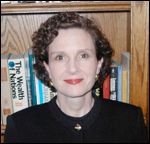MIAMI BREAST CANCER CONFERENCE 2012 intro
CancerNetwork presents exclusive coverage of the 29th Annual Miami Breast Cancer Conference. We speak with nationally recognized breast cancer specialists and bring you their insights into the optimal multidisciplinary management of patients with breast cancer and the application of innovative approaches to practice. As always, we encourage feedback and suggestions on how we can better serve your clinical cancer information needs. Please check your inbox for reports from the 29th Annual Miami Breast Cancer Conference, and watch here for our editorial staff’s coverage during the meeting.

CancerNetwork presents exclusive coverage of the 29th Annual Miami Breast Cancer Conference. We speak with nationally recognized breast cancer specialists and bring you their insights into the optimal multidisciplinary management of patients with breast cancer and the application of innovative approaches to practice.
As always, we encourage feedback and suggestions on how we can better serve your clinical cancer information needs. Please check your inbox for reports from the 29th Annual Miami Breast Cancer Conference, and watch here for our editorial staff’s coverage during the meeting.

Dr. Joyce O’Shaughnessy, codirector of breast cancer research at the Texas Oncology–Baylor Charles A. Sammons Cancer Center and the US Oncology Network in Dallas, Texas
Ahead of the 29th Annual Miami Breast Cancer Conference that starts March 14, CancerNetwork spoke with Dr. Joyce O’Shaughnessy, codirector of breast cancer research at the Texas Oncology–Baylor Charles A. Sammons Cancer Center and the US Oncology Network in Dallas, Texas. Her focus as an oncologist is on breast cancer prevention and treatment.Dr. O’Shaughnessy presented an overview of new therapies for triple-negative breast cancer at the Miami Breast Cancer Conference.
CancerNetwork: Dr. O’Shaughnessy, what are the current treatment options for women diagnosed with triple-negative breast cancer? Let’s start with metastatic disease.
Dr. O’Shaughnessy: Metastatic cancer that is triple-negative is difficult to treat because our therapies are generally short-lived in their benefit, if they benefit patients at all. There is a subset of triple-negative metastatic patients who really don’t have responsive disease to any of our standard therapies. Our therapies are basically three, in my opinion, at the Level 1 evidence-where we have enough data from large phase III trials where we can say we know what the level of efficacy is.
Click here to read more . . .
Targeted Therapy First Strategy Reduces Need for Chemotherapy in Newly Diagnosed LBCL
December 7th 2025Lenalidomide, tafasitamab, rituximab, and acalabrutinib alone may allow 57% of patients with newly diagnosed LBCL to receive less than the standard number of chemotherapy cycles without compromising curative potential.